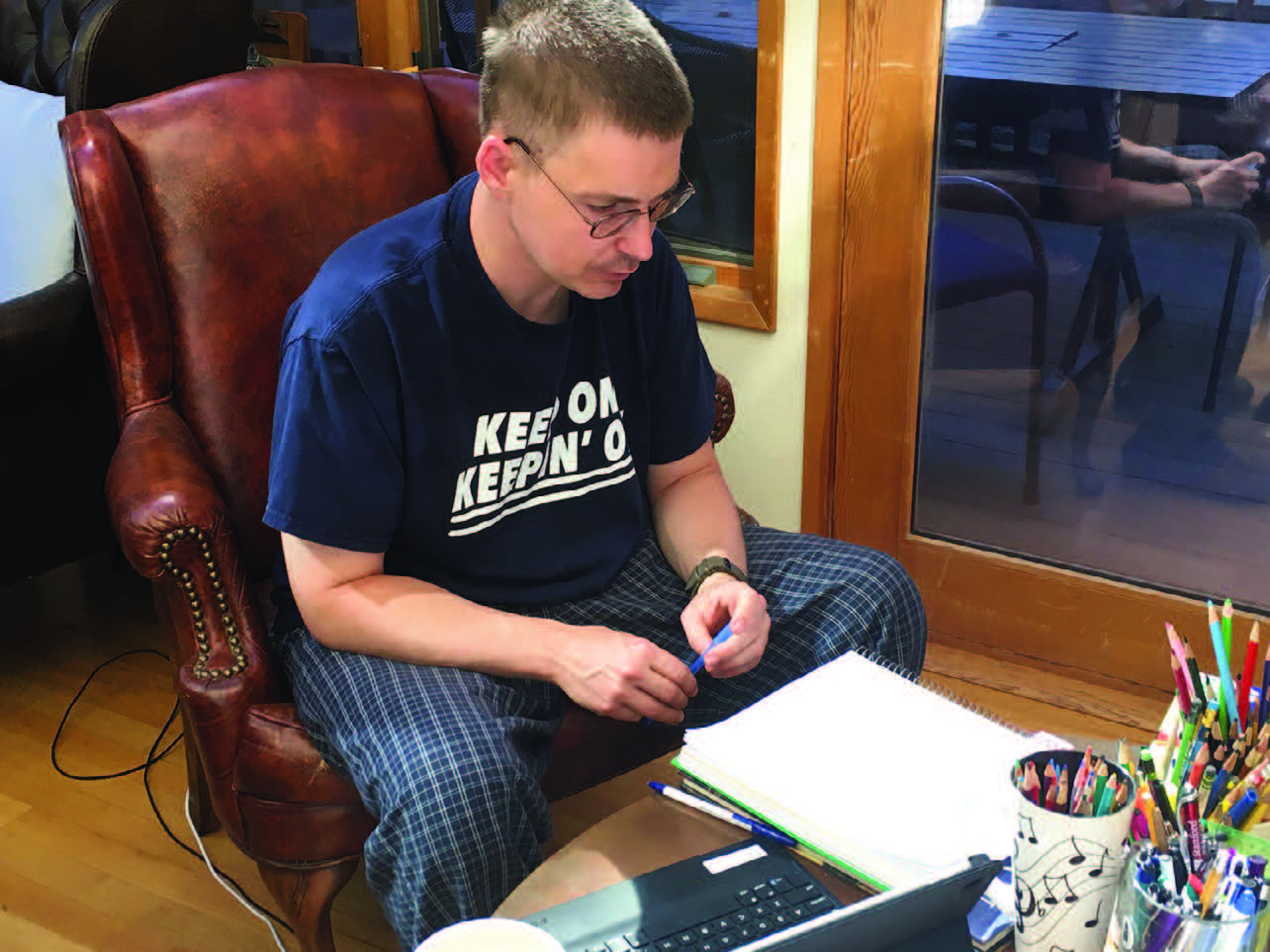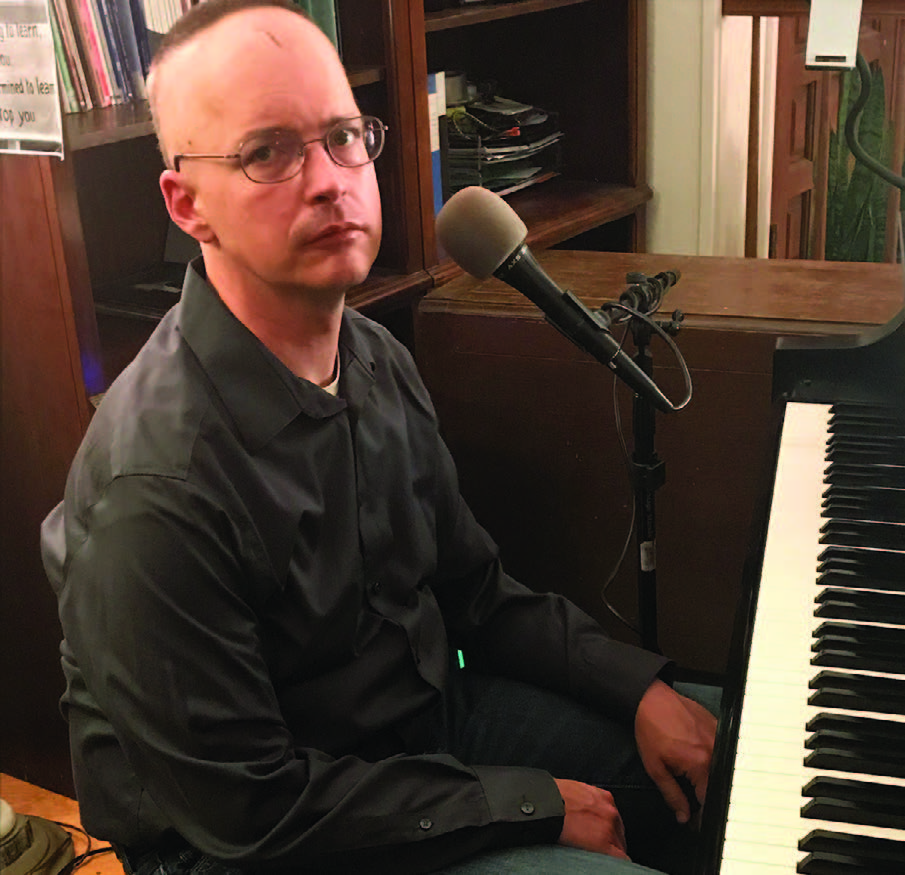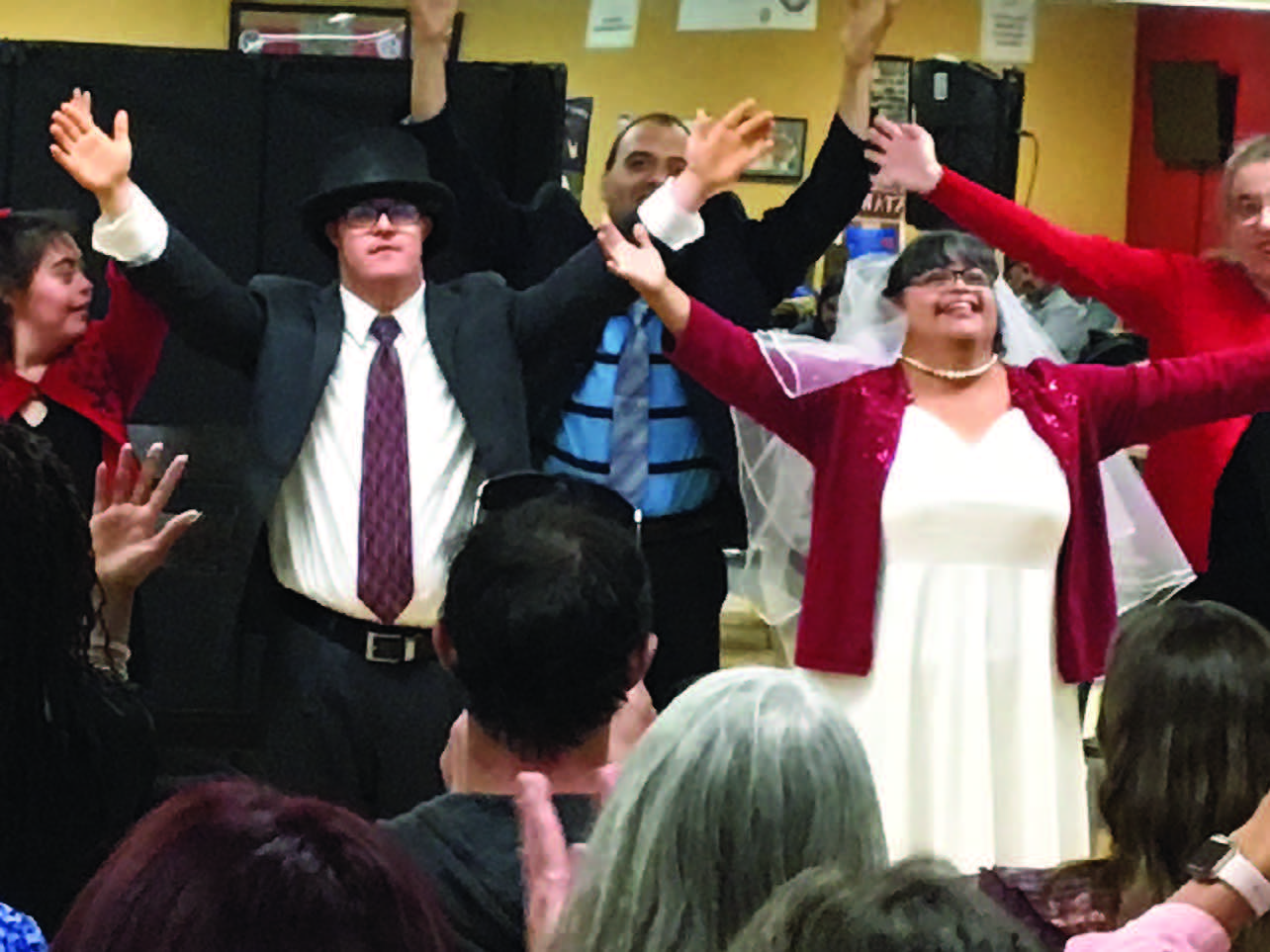
The mission of CAA is exclusively lifelong education, but the vocational component is incorporated with the hiring of incredible and astute individuals who have had a hard time finding gainful employment in traditional workforce settings. CAA has also hired numerous students onto their CAA "Superstaff" as well to work as Associate Professors in multiple classes.
REINVENTING COLLEGIATE OPPORTUNITIES FOR ADULTS WITH SPECIAL NEEDS
BY DEANNA PURSAI
Many young people with special needs grow up seeing their friends and family graduate from high school and head off to college to get a degree and a diploma, but there is a stark contrast in educational opportunities for themselves, as most are mandated out of postsecondary programs at age 22.
If they are not able to keep up with the accommodations afforded them to access an .edu Associate's Degree, their educational opportunities essentially come to a grinding halt, and the focus shifts almost exclusively on independent living, vocational training, and traditional day program options. But all that is changing with College of Adaptive Arts (CAA), a 501 c 3 non-profit which provides an equitable, lifelong collegiate experience to adults with special needs who historically have not had access to college.
Co-founders DeAnna Pursai and Dr. Pamela Lindsay started College of Adaptive Arts in 2009 after both witnessing loved ones with special needs become marginalized and sidelined once they exited the public school system. They both knew how much more their loved ones were capable of achieving and saw the vast chasm between what was available educationally and what was possible for adults to achieve.


SHOWTIME: (Opposite page) Dr. Pamela Lindsay and CAA student & 2020 Valedictorian Oliver Motiee at a past CAA Film Festival. The 13th Annual Celebrating Abilities Virtual Film Festival featured films by, for, and about people with disabilities, showcased 50 films from nearly 2,000 entry submissions from around the world. (Above left) Associate Professor Bernard particpates in a Zoom class; (Above right) Curtis rehearses on a CreaTV set.
"When we first began, it was just one-musical theatre class and 12 adult students," said Dr. Lindsay, co-founder of the CAA. "As of Fall 2021, we are proud to report that we have nearly 80 course offerings, including around 1,000 available class seats and close to 160 adult students across four states each quarter."
What makes College of Adaptive Arts so different is that it focuses on person-centered, self-determination initiatives. The school accepts adults ages 18+ of all skill levels, and no prospective student is turned away. Some students are higher functioning while others are still learning how to read, write, and sometimes still learning how to speak. There are no tests, no papers to submit, and every student gets an A+ for the day if they want to be there and continue learning. Each course is one-hour long each week, and students only sign up for the classes that they are interested in.
According to CAA co-founder DeAnna Pursai, this new type of model provides a lifelong, articulated, equitable collegiate experience. "There are excellent collegiate models on institutions of higher learning – but nearly all these models are finite in design with a maximum of two to four years," said Pursai. "Other educa tional programs for adults have [maximum age limit guidelines] vs. age limits at 28 or 32 years of age."
"However," adds Dr. Lindsay, "adults with developmental disabilities do not experience a finite group of years during which they are able to capture concepts. They benefit from ongoing re-teaching and re-learning of skills, including reading and writing skills, over time. CAA's revolutionary model breaks the box, delivering courses personalized to each student's current needs at any point on their ongoing learning journey, plus expanded friendships and community engagement."
College of Adaptive Arts offers privately accredited, nontransferable diplomas with annual graduation ceremonies with keynote speakers, valedictorian/salutatorian, and other CAA performances. After they graduate, students are welcomed and encouraged to reenroll and continue their educational journey for as long as they have an interest.
Bernard Smith has been a student at College of Adaptive Arts since its inception. Several years ago, Bernard was given the opportunity to become an associate professor, as well as a student at CAA. He assists in the choir class and is their piano accompanist. According to his mother, Donna Smith, despite his autism, Bernard has grown tremendously and in many ways at CAA.
"He has grown in confidence, social skills, and in his ability to work with other teachers and students," said Donna. "He thoroughly enjoys his classes, friends, and teachers. CAA is really an integral part of his life."
While at CAA, Bernard has enjoyed a great variety of classes including art, reading, book club, science, math, nutrition, computers and more.
CAA has 10 Schools of Instruction – five in the arts and five in academics and health and wellness, rounding out a full liberal arts education that any adult would receive, whether they were enrolled in a community college, a state school, or an elite private university. Over the years, the educators there listened to the requests of the adults, their parents, and care providers for more subjects they'd be interested in learning – classes like guitar, clay animation, computers, podcasting, voiceover, dance techniques, coding, and reading and writing.
The impact of this inclusive model on the students, their parents and care providers, and the CAA staff cannot be overstated. Students have made stunning leaps in developmental growth within such areas as new subject inquiry, confidence and advocacy ability, and development of lasting friendships.


CENTER STAGE: (Above left) Bernard prepares for his duties as piano accompianist; Melissa Correa (Above, right) has performed in many CAA productions since the founding of the school.
Melissa Correa is another student who has been at CAA since the beginning. According to Melissa, part of what she likes about attending school is the social aspect. "I like seeing my friends and I have fun," said Melissa. "I am challenging myself."
Melissa has Down syndrome, and for most of her life, her mother Janice Correa had to be an advocate for her when it came to her education. But with CAA, Melissa was given the power to choose the classes she wanted and was interested in, instead of having them chosen for her. Melissa's mother, Janice Correa, said she is constantly amazed at how Melissa is able to grow and thrive.
"She's 40 and is continuing to enrich herself," said Janice. "She has tried many different courses but has decided what she likes and what she doesn't."
CAA parents and care providers report resounding feelings of hope, relief, and astonishment of all the new skills, areas and interests they had no idea their adult children would explore. They also have found a rich network of camaraderie and support with other parents and care providers, as parents routinely stay on site and connect with each other as each class is just one hour long throughout the day. There is a constant flow of comings and goings, and for many, it is rewarding to see all of the positive synergy when students and their families connect around a like-minded course offering.
Another important component which sets CAA apart is that they strive to employ adults with differing abilities and complex backgrounds to be the front-line lead professors of this innovative collegiate model. The mission of CAA is exclusively lifelong educa tion, but the vocational component is incorporated with the hiring of incredible and astute individuals who have had a hard time finding gainful employment in traditional workforce settings. CAA has also hired numerous students onto their CAA "Superstaff" as well to work as Associate Professors in multiple classes.
"Operationally CAA has grown more than 1,800% since inception and is well on the way to achieving a sustainable income stream of two million," said Dr. Lindsay. "Family and corporate patrons have routinely underwritten eight of the 10 schools, and CAA is always seeking more investors to inquire and engage in this innovative educational model of lifelong education and collegiate partnerships. One of CAA's strategic visions for the 2021 fiscal year is to actively partner with each of the 24 California Regional Centers and provide lifelong learning to adults with special needs across the state."
In July 2020, during the pandemic, CAA's physical building was sold and the West Valley Mission Community College District voted unanimously to welcome this equitable collegiate model onto their West Valley Campus in Saratoga, California. The partnership will allow CAA to be a living learning lab/work-study/leadership training lab for host campus students and staff whereby CAA adult students will have the integrity of learning on an authentic college campus. CAA's ultimate goal is to show how this expanded collegiate model can be replicated on every campus of higher learning around the world for adults who are hungry to continue learning, growing, creating, connecting, and becoming the best versions of themselves. •
ABOUT THE AUTHOR:
DeAnna Pursai is the co-founder of the College of Adaptive Arts. She holds a Master's in Education Policy Analysis in the School of Education from University of Illinois at Urbana-Champaign and an undergraduate degree in Elementary and Special Education from Purdue University. DeAnna has been named an Architect of Change on the Maria Shriver blog and co-awarded the Delta Kappa Gamma State Distinguished Career/Professional Service Award with CAA's Co-Founder and Dean of Instruction, Dr. Pamela Lindsay. She is a big sister to Angel Ellenberger, who is an exquisite actress, entertainer and comedian who happens to have Down syndrome.